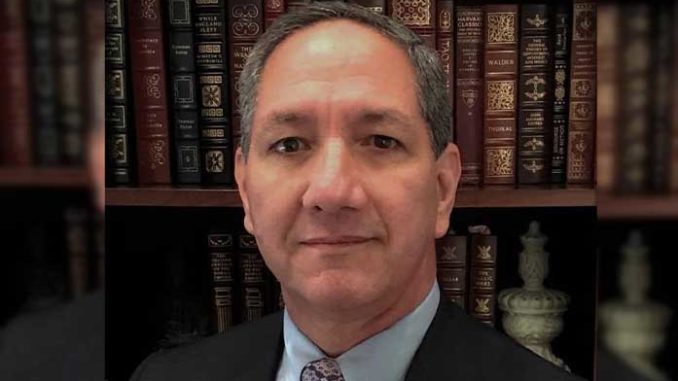
A federal judge has dismissed a Cochise County sheriff’s deputy and a former prosecutor from a $5 million lawsuit that alleged they conspired to violate a businessman’s civil rights during a marijuana trafficking investigation that spanned seven years.
On April 30, U.S. District Court Judge James Soto granted a defense motion dismissing Lt. Curtis Wilkins and then-Deputy County Attorney Roger Contreras from a lawsuit filed by Loren Jay Sheldon in September 2019. The judge’s ruling does not apply to five federal agents named in the lawsuit, which accuses the defendants of malicious prosecution, conspiracy, and due process violations.
A multi-agency taskforce began to investigate Sheldon in 2008 after Wilkins received a trip that Sheldon’s trucking and gravel company in Whetstone was trafficking large loads of marijuana out of Cochise County. Contreras became involved around 2012 after detectives were unsuccessful in getting the Pima County Attorney’s Office or U.S. Attorney’s Office to prosecute the case.
Criminal charges weren’t filed against the longtime businessowner until 2015. Among the charges were conspiracy to transport marijuana, possession of marijuana for sale, and conducting an illegal enterprise through racketeering.
But Sheldon never stood trial, as all the charges were dismissed at Contreras’ request during a three-month period in 2017. Then in October 2018, Presiding Judge James Conlogue issued a rare order sealing the entire court file, arrest records, and police reports.
“In hindsight, it is now apparent there was no realistic probability the State could ever prove the charges beyond a reasonable doubt,” Conlogue ruled at the time.
Sheldon later sued Contreras and the six investigators, seeking monetary and punitive damages. An attorney for Wilkins and Contreras recently filed a motion to dismiss the two Cochise County defendants from the lawsuit, arguing that Sheldon failed to state actionable claims in his civil complaint.
“To survive a motion to dismiss, a complaint must state a claim that is plausible on its face,” Soto noted, adding that court rules required Sheldon to plead “factual content that allows the court to draw the reasonable inference that the defendant is liable for the misconduct alleged.”
In granting the motion by Wilkins and Contreras, Soto noted he first assumed the allegations in Sheldon’s lawsuit were true and then he looked at the weight of the claims. One allegation was that Wilkins recruited an informant he knew to be unreliable, and then relied on the informant’s uncorroborated reports of Sheldon’s participation in drug trafficking to obtain a search warrant.
The November 2008 search turned up no evidence of criminal activity at Sheldon’s property, but the investigation continued for nearly seven more years, according to court records.
For Wilkins to be liable of malicious prosecution, Soto ruled Sheldon needed to have put forth more than a “vague and conclusory statement” about the reliability of the deputy’s informant. And for Wilkins to be liable of a due process violation, there needed to have been a showing of specific facts that Wilkins “was not merely reckless or deliberately indifferent” but had acted in bad faith, Soto explained.
Soto also ruled Sheldon failed to allege facts showing Contreras prosecuted the case without probable cause or with malice for the purpose of denying Sheldon due process. In addition, the judge noted prosecutors have absolute immunity from liability for conduct “intimately associated with the judicial phase of the criminal process.”
Sheldon had also alleged Wilkins and Contreras conspired with each other and the other defendants to violate the businessman’s constitutional rights.
“Plaintiff has not alleged any specific facts demonstrating that Defendants Contreras and Wilkins had an agreement or meeting of the minds with each other or with any of the other Defendants,” Soto noted. “Plaintiff’s vague, conclusory, and highly speculative allegations are insufficient to state a claim.”
The remaining defendants in Sheldon’s lawsuit are agents who work for Homeland Security Investigations and the U.S. Drug Enforcement Administration. A jury trial isn’t expected until mid-2021.
